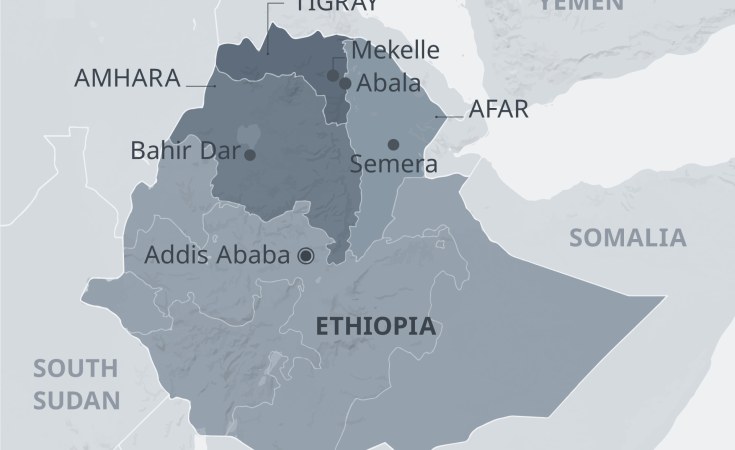As Ethiopian courts support a motion to cut short a United Nations-mandated inquiry into atrocities committed during the Tigray war, observers fear the move could widen the divide between African and Western nations.
Ethiopia's proposed motion has yet to be formally submitted to the 47-member rights council, which meets from Monday until April 4.
Though the Geneva-based UN Human Rights Council has never ended a probe before its mandate, Addis Ababa has circulated a draft version of a resolution calling for the Tigray inquiry to stop some six months early. That would also block the publication of findings, as well as a final debate at the council.
Ethiopia has opposed the investigation from the outset, calling it politically motivated and trying to block funding. It now wants the UN Human Rights Council to terminate the mandate of the International Commission of Human Rights Experts on Ethiopia (ICHREE).
"It would be a terrible precedent," a Western diplomat in Geneva told Reuters news agency.
Amnesty International's Suad Nur, who campaigns for human rights in the Horn of Africa, told DW "we believe that it will have serious consequences for the credibility of the Human Rights Council," adding that stopping the investigation would "deny justice for victims and survivors of gross human rights violations, including sexual violence from this highly atrocious conflict."
The Ethiopian government's two-year conflict with forces in the northern Tigray region ended last November with thousands dead and millions uprooted.
The war pitted the Tigray People's Liberation Front (TPLF) against federal troops, who were also backed by fighters from the nearby Amhara region and neighboring Eritrea. Both sides blamed each other for widely documented atrocities, including massacres, rape and detentions without trial.
Rights groups reject Ethiopia's move
A petition signed by about 60 civil society groups and human rights organizations said, "Ethiopia's attempts to terminate the council's mandate during its term are unprecedented."
The statement further says, "not only does it suggest that states can politically maneuver to overturn the decisions of the Human Rights Council to avoid independent scrutiny and accountability, but it could also set a dangerous precedent regarding international scrutiny and impunity for rights abuses elsewhere."
Ethiopian human rights activist Yared Hailemariam told DW that "the crimes being investigated are those that require an international court. When the most serious human rights violations are committed in any country, the violations will be investigated by independent experts and organizations."
Human Rights Watch (HRW), which collected the signatures from the organizations, said the independent mandate and work of ICHREE is crucial to preserve the opportunity for victims of grave international crimes, to have access to justice, particularly because of the eroding environment for independent media and human rights monitoring of conflict-affected areas of Ethiopia.
"The organizations are deeply concerned about the government's ongoing harassment of human rights defenders, including at the judicial level," HRW said.
DW contacted Ethiopia's embassy in Geneva for comment, but has not yet received a response.
African opposition to probe
Since three independent experts began work at the end of 2021, the inquiry has found "reasonable grounds to believe" that all parties in the conflict committed war crimes and other abuses of international human rights law and humanitarian law.
But political support has faded in recent months, most notably among some African states which opposed its renewal in October. The probe was extended for another year by a tiny margin.
"We believe that it's highly unacceptable for the government to continue to obstruct justice and accountability for the gross human rights violations being committed in Ethiopia," said Amnesty's Suad Nur.
Diplomats said any vote on a possible Ethiopian motion would be tight and would pit Western countries -- as well as the European Union, which helped set up the investigation -- against African partners.
The West needs allies against China in the divided council and against Russia over the Ukraine conflict.
"It would be a big fight," said one of the diplomats who opposes early termination of the mandate.
The US ambassador to the council, Michele Taylor, confirmed that Ethiopia was considering an early halt to the mandate.
"We oppose the precedent that it would set. We do not think it is helpful for their current process and progress," Taylor said.
Edited by: Keith Walker


